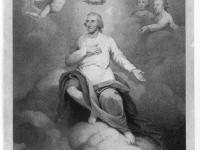"If I say goodbye the nation learns to move on. It outlives me when I'm gone" -- President George Washington from the musical Hamilton
The title of this blog is a quote from the musical smash hit Hamilton. It comes at a pivotal moment where George Washington explains to his young treasury secretary, Alexander Hamilton, that he will not be running for a third term as President. It is easy for us to see this moment in a textbook and gloss over it since we see nothing strange about Washington leaving after two terms in office. In reality though, the only government these men previously knew, prior to Washington’s Presidency, was a monarchy, and many citizens in our new nation, including Hamilton, would have been perfectly fine with Washington naming himself our new dynastic King, or at least continuing as President until his death.
The focus on the revolutionary aspect of Washington stepping down is seen in the song “One Last Time,” and King George III’s song “I Know Him.” King George III, the only character in the musical played by a white male, is shocked that a man would choose to give up his power and he scoffs at the idea that a nation can survive with this type of turnover. Yet, even with the trepidation, the Presidency was passed from George Washington to John Adams, thus securing our new democracy and setting a precedent for future leaders. Presidential elections are often messy, as the musical Hamilton recalls, yet they remind us that, thanks to the founding fathers, we have a choice in who we elect.
So, in the midst of our first Presidential turnover, what did President Washington have to say to the nation? To see a full transcript of his farewell speech you make check out a version from our digital library or check out this version translated into modern slang. When using this with students, I like to pay particular attention to paragraphs 17-26, where he discusses his views toward political parties, and paragraphs 33-40, when he discusses foreign policy, and relationships with other countries. These two passages are particularly interesting because they talk about his hatred of political parties, as well as his apprehension to become involved in foreign conflicts particularly, at this time, the French Revolution. Some discussion questions to consider: What does Washington think of political parties? Do you agree or disagree with his opinions on political parties? Should we, as a nation, follow his advice on foreign policy? Have we followed his advice on foreign policy?
The strengths of Hamilton comes from its ability to highlight the uniqueness of our government at the time of its inception, as well as, illustrate that the founders were not infallible. Rather, these are men who make many mistakes and, in the end, created a democracy that still exists almost 250 years after the Declaration of Independence. By teaching the founders as human beings, with their failures and triumphs, we are reminded of their profound impact, both good and bad, and the repercussions of their decisions that still echo in our world today.
“I anticipate with pleasing expectation that retreat in which I promise myself to realize, without alloy, the sweet enjoyment of partaking, in the midst of my fellow-citizens, the benign influence of good laws under a free government, the ever-favorite object of my heart, and the happy reward, as I trust, of our mutual cares…” – President George Washington

